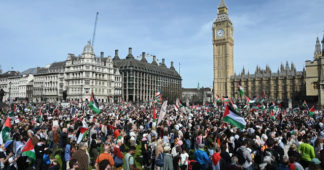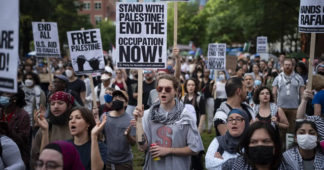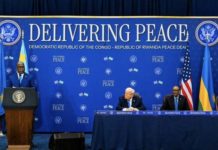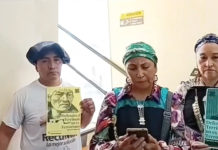By Marwan Emil Toubassi
Amid the thunder of bombardments in Gaza, and at a time when genocide and massacre intersect with global silence, initiatives such as the “Global March to Gaza,” “Freedom Flotilla,” “Convoy of Steadfastness,” and the vessel Madeliene have emerged as symbolic, humanitarian, and political actions sending a clear message: Palestine—and Gaza—is not alone. These initiatives, born from the heart of massacres and forged in the fire of public outrage, reject the complicity of the international system. They rise from the streets of the world to declare that dignity cannot coexist with siege and starvation—and that people, when governments fail, can become the voice of justice.
The Idea and Its Dimensions
The idea began in Europe—sparked by the conscience of popular movements, progressive activists, and solidarity committees rejecting the ongoing genocide and ethnic cleansing carried out by Israel in Gaza, the West Bank, Jerusalem, and even against Palestinians inside Israel. The immediate goal was to break Gaza’s suffocating isolation through a peaceful mass mobilization reaching Rafah and onward into Gaza. But the deeper essence was to reaffirm the humanitarian and rights-based core of our national liberation struggle and to expose international silence as a form of complicity.
What began as a local campaign quickly evolved into a sustained global march. Thousands of volunteers from across Europe and beyond have committed to participating—making this one of the largest popular solidarity movements with Gaza in decades, alongside land convoys from Morocco, Tunisia, and Algeria through Egypt.
Symbolic Action in the Context of Siege and Massacre
At a moment when the occupation seeks to isolate Gaza geographically, politically, and psychologically, this march shatters silence and repositions the Palestinian cause within global consciousness. Breaking the siege is no longer a humanitarian act alone—it has become a form of political resistance. It challenges the complicity of both regional and international systems, shifting the momentum from backroom deals to the moral streets of global civil society.
In this sense, the march represents not merely humanitarian support but a global will to confront colonialism and collective punishment. It stands against the moral normalization of killing and displacement. It revives the spirit of international solidarity that once supported liberation struggles in South Africa and Latin America—and today stands with us in Palestine.
From the Ship “Madeliene” to Sustainable Solidarity
The small but mighty ship Madeliene became a living embodiment of this solidarity. Though no one expected Israel to allow it to dock in Gaza, it reached the world with its message, shaming the so-called “only democracy in the Middle East,” which could not confront a group of peaceful volunteers without resorting to military force in international waters.
The ship and its passengers were arrested—but they completed their mission. Hundreds of new ambassadors for Palestine emerged from that journey, exposing to the global public the brutality and moral bankruptcy of the Israeli occupation. And Madeliene will not be the last. Preparations are underway for new flotillas and convoys from Mediterranean ports and through Rafah—broadening exposure, deepening accountability.
UN expert Francesca Albanese’s recent statement that “breaking Gaza’s siege is a legal obligation for states and a moral imperative for peoples” adds a critical legal dimension. It affirms the world’s duty not just to show solidarity, but to act—legally, morally, and politically—against settler colonialism.
ICJ Advisory Opinion: Legal Grounding for Global Solidarity
The recent advisory opinion by the International Court of Justice—calling for an end to the Israeli occupation within a defined timeline—represents a legal, political, and moral achievement for Palestinians. It must now serve as a cornerstone of our liberation project, and as a legal and strategic tool in confronting apartheid and colonial erasure.
Yet some European diplomatic initiatives—framed as “peace efforts”—often aim to deflect public condemnation of their governments’ complicity. These are not grounded in genuine support for inalienable Palestinian rights. Rather, they seek to dilute the liberation essence of our cause, turning it into a humanitarian crisis or an endless “conflict.”
Our national responsibility, therefore, demands clarity. We must anchor the ICJ opinion as a binding legal and moral reference point, mobilizing it in both official and popular arenas, while exposing attempts to bypass or undermine it. Any proposal not rooted in the full recognition of our national and historical rights—especially refugee return under UN Resolution 194 and self-determination—must be firmly rejected.
This legal opinion also empowers solidarity movements, providing legitimacy for converting public pressure into a global legal demand: end genocide, end occupation—now, not merely manage or sanitize it.
Towards Deepened and Reciprocal Solidarity
Palestine today is not merely a victim of military occupation—it is resisting a settler-colonial project, a mirror to global systems of oppression. Solidarity with Palestine is a reflection of humanity’s shared fate in the face of injustice and neocolonialism. Likewise, our support for the struggles of Latin America, Africa, the Global South, and refugees is part and parcel of our own liberation.
Palestine at the Heart of Global Movements
Israel will not succeed in silencing Gaza or Palestine—not by siege, bombing, starvation, or displacement. The voices rising from the Mediterranean ports, from Madrid, Paris, London, Berlin, New York, Italy, and Greece, mark the dawn of a people’s movement that will not cease. It is not only for Gaza—it is for a more just, equal, and dignified world.
Turning solidarity with Palestine into a long-term global liberation project is both a national responsibility and a strategic necessity. It unites Palestinians and the world’s freedom-loving peoples in one common trench—against occupation, racism, silence, and for justice and human dignity.
We remind our readers that publication of articles on our site does not mean that we agree with what is written. Our policy is to publish anything which we consider of interest, so as to assist our readers in forming their opinions. Sometimes we even publish articles with which we totally disagree, since we believe it is important for our readers to be informed on as wide a spectrum of views as possible.











